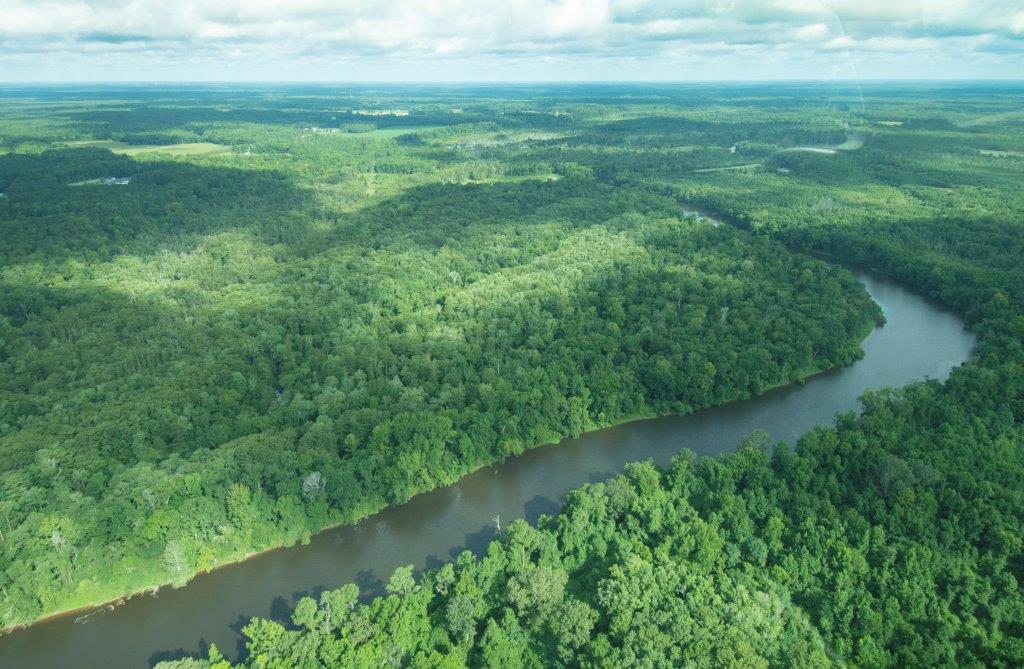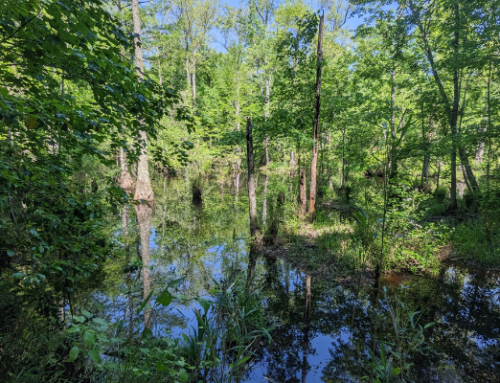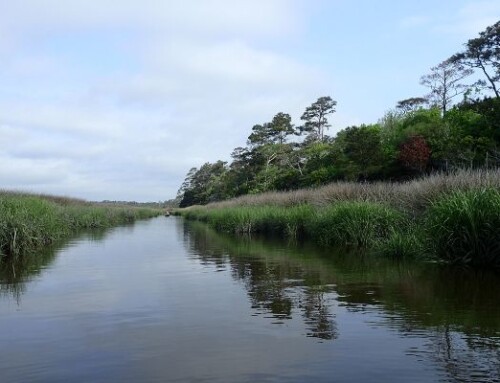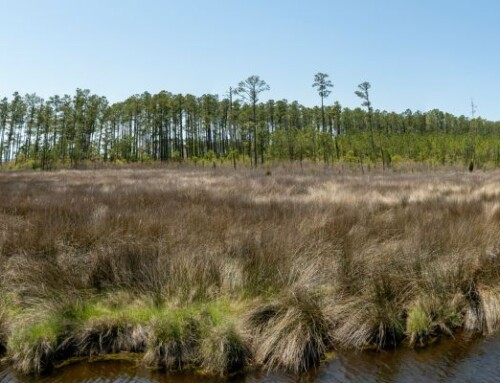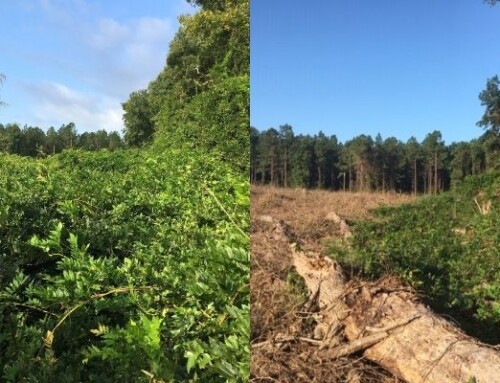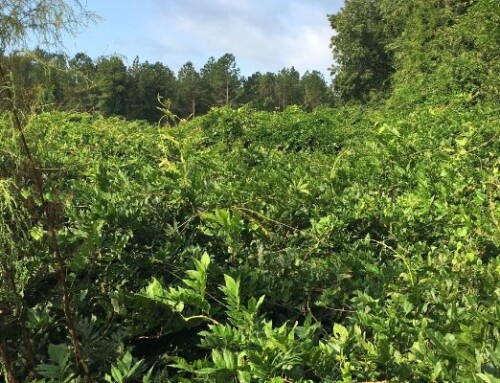The N.C. Coastal Land Trust completed the purchase of 265 acres along 1.1 miles of the Cape Fear River in Bladen County. The property, located in the small town of East Arcadia just north of Riegelwood, hosts mature floodplain forest and upland hardwood ravines. It is an area rich in wildlife providing nesting habitat for wading birds like the Great Egret and federally threatened Wood Stork; waterfowl like Wood Duck and Hooded Merganser; as well as bottomland hardwood dependent songbirds such as Prothonotary Warbler and Swainson’s Warbler. The backwaters and sloughs of the floodplain serve as nursery areas for a multitude of fish species including anadromous fish like striped bass, American and hickory shad, and possibly the federally threatened Atlantic sturgeon. Rare bats, like Rafinesque’s big-eared bat and Southeastern bat, forage for insects over the open waters of the Cape Fear and utilize the large trees in the swamp for roosting.
This forest includes a portion of Steep Run Swamp, a site identified as “ecologically significant” by the North Carolina Natural Heritage Program. This designation is due to the age and near pristine bottomland hardwood and cypress-gum forest as well as the known nesting colony of Wood Storks there. The Wood Stork, North America’s only native stork, is a relative newcomer to North Carolina with its primary range being Florida, Georgia, and South Carolina.
N.C. Wildlife Resources Commission biologists discovered the first Wood Stork colony in the Tar Heel State in 2005 while conducting aerial surveys for Bald Eagle nests. According to Wildlife Commission biologist, Carmen Johnson, Wood Stork numbers are on the rise in coastal North Carolina with more than 350 nests tallied in 2019 and more than 690 nests in 2021. Johnson notes, “The species nests in hardwood trees, especially cypress, surrounded by shallow water where they can find fishes, invertebrates, and amphibians to eat and feed their chicks. The storks have found ideal habitat in the mill ponds and swamps of southeastern North Carolina. By protecting the Steep Run Swamp, the Coastal Land Trust is helping to ensure that these birds continue to flourish in our state.”
The other exciting bird to be discovered in Steep Run Swamp, is the Swallow-tailed Kite, a slender and elegant bird of prey. Wildlife Commission biologist, John Carpenter, who first spotted the nest in 2011 from a plane flying low along the Cape Fear, stated, “This was an exciting find as it is the first documented Swallow-tailed Kite nest in the state. While these beautiful raptors are now nesting in other places along the Cape Fear, Black, and Waccamaw Rivers, the nests are difficult to spot.”
“We are thrilled to have conserved a portion of Steep Run Swamp along the Cape Fear that supports such a diversity of birds and other wildlife,” said Janice Allen, the Coastal Land Trust’s Director of Land Protection. “It is also a wild and wonderful place to fish, hunt, and explore by kayak or canoe. And there is a myriad of other human benefits as the upland and wetland forests on this property help store carbon critical for climate resiliency, moderate floodwaters, and filter the water. “Bottom line is that our land conservation work is not just for the birds and other critters but for people too. The Coastal Land Trust conserves special places along our coast that provide a multitude of benefits,” said Janice Allen.
Funding for this purchase was generously provided through the U.S. Fish and Wildlife Service, Ducks Unlimited, Mr. and Mrs. Fred Stanback, North Carolina Environmental Enhancement Grant program, International Paper, National Fish and Wildlife Foundation, and the North Carolina Native Plant Society’s Alice Zawadzki Land Conservation Fund.
“I’m pleased that Environmental Enhancement Grant funds are being used to preserve this area along the Cape Fear River,” said Attorney General Josh Stein. “The Coastal Land Trust’s work to conserve this land will help protect wildlife and allow North Carolinians to enjoy the natural beauty of eastern North Carolina for generations to come.”
“This project aligns well with our Vision 2030 water stewardship and forest stewardship goals,” said Kevin Driscoll, mill manager at International Paper’s Riegelwood, N.C. Mill. “This land will continue to enhance water quality by buffering more than a mile of waterfront, provide habitat for several rare species and conserve a significant natural heritage area and mature wetlands.”
This partnership supports International Paper’s Vision 2030, which includes goals and targets for building a better future for people and the planet. Vision 2030 has an increased focus on water stewardship, with plans to reduce operational water use by 25% as well as to support watershed health in partnership with local water users and stakeholders, and has a focus on forest stewardship, with a goal to conserve and restore 1 million acres of ecologically significant forestland by 2030.
“With this recent acquisition, the Coastal Land Trust has conserved over 16,600 acres along the Cape Fear River from Brunswick to Bladen County,” stated Allen. The property will be owned by the State and managed by the Wildlife Commission as part of the Whitehall Plantation Game Lands.
*Staff Photo

